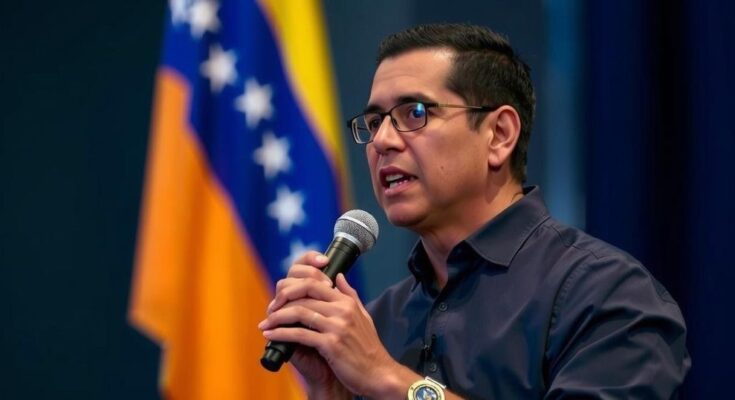The United States has recognized Venezuelan opposition candidate Edmundo González as president-elect after the disputed July election, in which President Nicolás Maduro claimed victory. Secretary Antony Blinken emphasized the need for respect for voters’ will, while the opposition insists that González won decisively. The announcement has intensified political tensions in Venezuela, with both domestic and international ramifications as the country prepares for a new presidential term starting in January 2024.
The United States has formally acknowledged Edmundo González, the opposition candidate in Venezuela, as the president-elect, following the disputed election held on July 28. U.S. Secretary of State Antony Blinken made this announcement via social media, urging respect for the democratic wishes of Venezuelan citizens. Despite the U.S. claim that González secured a clear electoral victory, there has been no official recognition of his presidency. The results announced by Venezuela’s election authorities, heavily influenced by President Nicolás Maduro, declared him the winner without a transparent vote count, leading to skepticism from various international observers regarding the election’s credibility. The opposition coalition presented evidence indicating González garnered double the votes of Maduro, and he expressed gratitude for the U.S. recognition of the Venezuelan people’s desire for change. In response to U.S. comments, Venezuela’s Foreign Minister Yván Gil launched personal attacks against Secretary Blinken while ignoring calls for electoral transparency. Colombia’s President Gustavo Petro has since reversed his initial support for the elections, labeling them as a mistake, further complicating the political narrative in Venezuela as the upcoming presidential term awaits its start in January 2024.
This article discusses the recent developments in Venezuela’s political landscape regarding the recognition of Edmundo González as president-elect by the United States. The July election, which was marred by allegations of fraud and lack of transparency, cast significant doubt on the legitimacy of Nicolás Maduro’s claim to victory. Following the election, international reactions have been polarized, with many countries calling for a detailed review of the election results. Similarly, tensions within the region are rising, particularly with leaders like Colombia’s President Gustavo Petro changing their stances on the validity of the election.
In conclusion, the U.S. recognition of Edmundo González as Venezuela’s president-elect reflects ongoing international scrutiny of the country’s electoral processes. Amid disputes over the legitimacy of the July election results, tensions continue between the Maduro administration and the opposition, as well as within the broader Latin American political community. As Venezuela moves towards the beginning of a new presidential term, the implications of these developments will be crucial for the future of its governance and international relations.
Original Source: apnews.com




